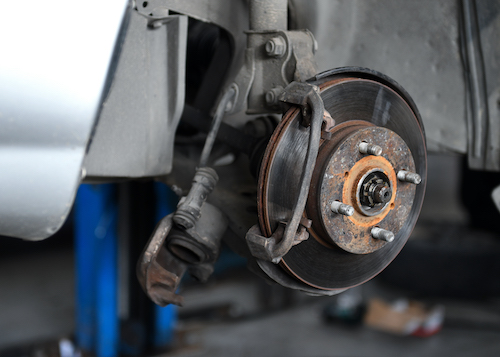After this thorough brake inspection service is completed, our brake mechanics will test-drive your vehicle to make sure everything is working properly. If any repairs are indicated, you will be given a written quote so you can ask questions and make a decision on how to proceed.
Brake Pads 101
Brake pads are an important part of your car’s braking system. They are flat pieces of steel with friction material on one side and play a key role in bringing your car to a stop when you step on the brake pedal. The pads come into contact with the brake discs and the friction causes the wheels to stop.
As you can imagine, this causes tremendous stress on the pads. Eventually they wear down due to this friction, especially if you:
- drive in heavy traffic, with frequent stopping.
- keep one foot on the brake all the time.
- frequently brake at the last minute.
- drive more than average.
Older vehicles may have brake drums rather than pads. However, the stopping process is much the same.
Driver’s Edge can help with any brake pad replacement needs!
Different types of brake pads
Drivers generally have a choice of three types of brake pads: ceramic, semi-metallic, or organic.
